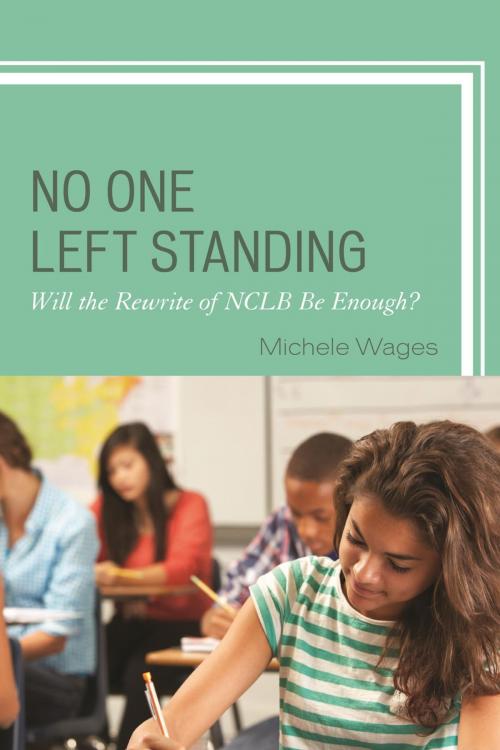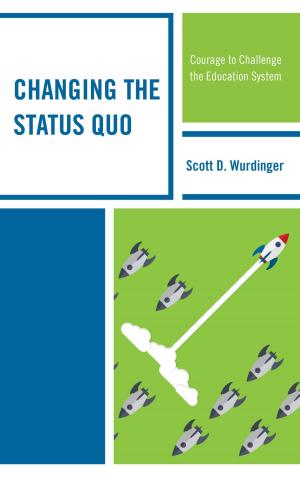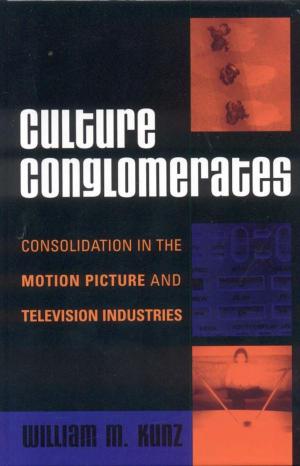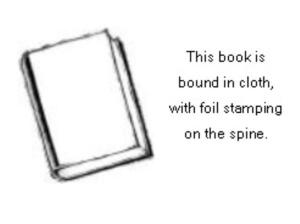No One Left Standing
Will the Rewrite of NCLB be Enough?
Nonfiction, Reference & Language, Education & Teaching, Educational Theory, Evaluation, Educational Reform, Teaching, Teaching Methods| Author: | Michele Wages | ISBN: | 9781475822649 |
| Publisher: | Rowman & Littlefield Publishers | Publication: | November 14, 2016 |
| Imprint: | Rowman & Littlefield Publishers | Language: | English |
| Author: | Michele Wages |
| ISBN: | 9781475822649 |
| Publisher: | Rowman & Littlefield Publishers |
| Publication: | November 14, 2016 |
| Imprint: | Rowman & Littlefield Publishers |
| Language: | English |
Every public school student in the U.S. will experience various types of testing each year. For decades, the purpose and quality of such testing, the time it takes to administer and take the test and how the data is used are the topic of discussion among students, parents, educators and policymakers. Those supporting the importance of testing assume that more assessment improves student achievement and that the pros of testing outweigh their ‘perceptions’ of the additional costs. Those against excessive testing, believe that schools are sacrificing learning time in order to test or prepare for the test. They also believe that reduced learning time of non -tested subjects occurs and more time is given to those students that are performing right below the proficiency score or “bubble kids” instead of developing every student’s full potential.
Testing in U.S. public schools is out of control. The stress and pressures for all involved have effects that are not even measureable in most instances. Is this really the best thing for our schools? Are there alternative measures that may serve our future in a better way?
Will the rewrite of NCLB be enough?
Every public school student in the U.S. will experience various types of testing each year. For decades, the purpose and quality of such testing, the time it takes to administer and take the test and how the data is used are the topic of discussion among students, parents, educators and policymakers. Those supporting the importance of testing assume that more assessment improves student achievement and that the pros of testing outweigh their ‘perceptions’ of the additional costs. Those against excessive testing, believe that schools are sacrificing learning time in order to test or prepare for the test. They also believe that reduced learning time of non -tested subjects occurs and more time is given to those students that are performing right below the proficiency score or “bubble kids” instead of developing every student’s full potential.
Testing in U.S. public schools is out of control. The stress and pressures for all involved have effects that are not even measureable in most instances. Is this really the best thing for our schools? Are there alternative measures that may serve our future in a better way?
Will the rewrite of NCLB be enough?















